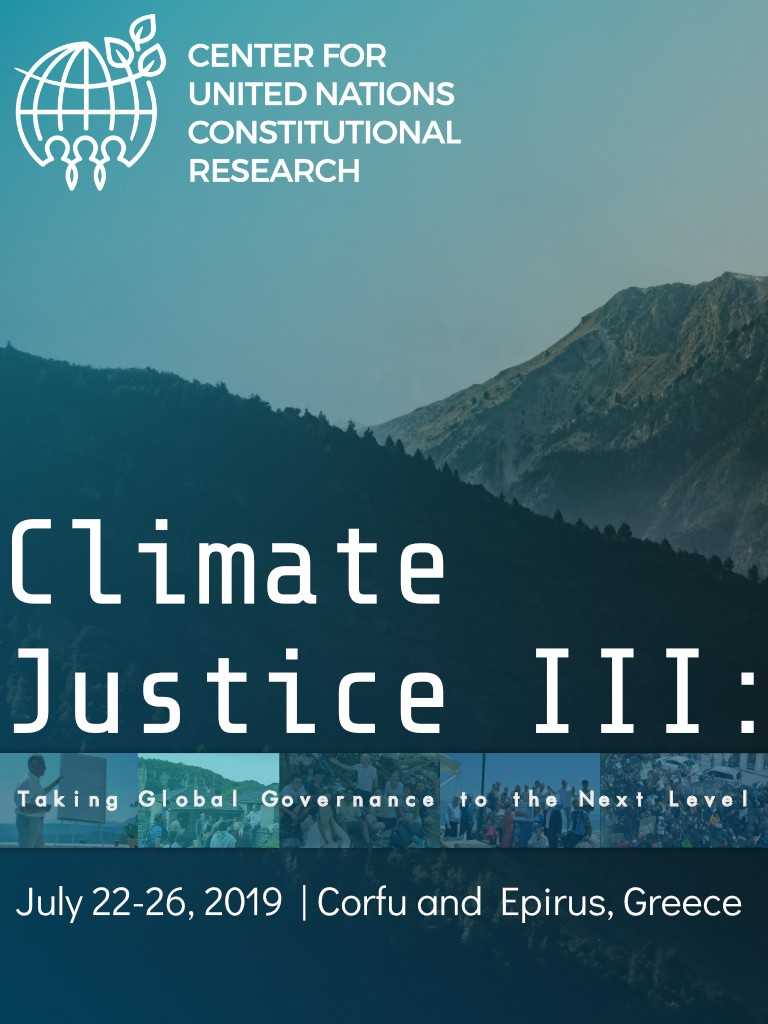Robert. A Rees, Ph.D.
Teacher | Graduate Theological Union
Cliffton Jolley
President | Advent Communications
EARTH CONSTITUTION:
There is an important moral and spiritual dimension to the issue of climate change as brought out in the following article “The Least of These”: Jesus and Earth Stewardship by Dr. Bob Rees and Clifton Jolley. Quoting scripture, they contend that Jesus Christ himself would direct us to take responsible action to the crisis of climate change. Importantly, they also bring to our attention the destructive impact on the less fortunate among us, as well as to future generations if we do not take urgent corrective action.
The Constitution for the Federation of Earth (aka Earth Constitution) drafted by the World Constitution & Parliament Association is the first “green constitution” ever drafted. Its Preamble states: “Aware that man’s abuse of science and technology has brought Humanity to the brink of disaster through the production of horrendous weaponry of mass destruction and to the brink of ecological and social catastrophe;”…
The Earth Constitution includes the Earth Stewardship that Rees and Jolley believe Jesus would demand. Article 1.5 directs Earth Federation government (i.e. a “new UN”)… “To protect the environment and ecological fabric of life from all sources of damage, and to control technological innovations whose effects transcend national boundaries, for the purpose of keeping Earth a safe, healthy and happy home for humanity.”
— Roger Kotila, Ph.D
“The age of climate panic is here.”
—David Wallace-Wells
Climate scientists are not crazy prophets of doom; they are a collective of urgent voice crying in the wilderness, warning of the inevitable catastrophes that already have been unleashed by melting glaciers, mega-cyclones and hurricanes and rising temperatures. As a recent article in the Guardian reports, “The world’s leading climate scientists have warned there is only a dozen years for global warming to be kept to a maximum of 1.5C, beyond which even half a degree will significantly worsen the risksof drought, floods, extreme heat and poverty for hundreds of millions of people.” David Wallace-Wells, author of the soon-to-be-released bookThe Uninhabitable Earth: Life After Warming,” warns that complacency is our gravest risk, that we will not act when clearly it is time to panic…which time is now!
A couple millennia ago, Jesus Christ sounded a similar (although, in its way, more expansive) call to action. In the twenty-fifth chapter of the Gospel According to St. Matthew, Jesus gives the ultimate challenge to his followers: they are to consider those whom they see as most in need–the naked, hungry, thirsty, homeless, and imprisoned; “the least, the lost and the lonely”–as if they were Jesus himself. He is saying that we should consider those who increasingly will suffer disease, destruction, and death if we fail to act to save the earth for future generations–as if they were Jesus himself–from the fire, floods and other devastations scientists predict as inevitable results of our folly. Jesus’ imperative should compel us to do all we can—so that our children’s and grandchildren’s generations can inherit a livable planet.
What is World Federalism?
World Federal Government (WFG)
Compare the urgency expressed by The Guardian, Wallace-Wells, and Jesus to our present federal government, which is not simply indifferent to the fate of future generations, but hostile to any conversation involving climate change. Responding to his own government’s National Climate Assessment of impending climate catastrophes, President Trump said he “doesn’t believe” it. His attitude toward climate change mirrors that toward the growing national debt. When warned that our present $21 trillion national debt could balloon even higher, Trump responded, “Yeah, but I won’t be here.”
What a rebuke of Jesus’ teaching. As Francisco Goldman says, “The great metaphor at the heart of the Gospel According to Saint Matthew is that those who suffer and those who show love for those who suffer are joined through suffering and grace to JesusChrist.”
One assumes such empathic love includes not just those who now suffer but those who increasingly will suffer as a result of our indifference to the fate of the planet we are blessed to inhabit and which we seem intent on degrading and destroying. We tend to forget that the earth does not belong to us, but rather is a gift from a loving God. As the 24th Psalm says, “The earth is the Lord‘s, and the fulness thereof; the world, and they that dwell therein.”
Our imaginations should allow us to project two possible scenarios as far as the fate of the earth—and therefore


THE SAN FRANCISCO PROMISE
Click to Learn More
Solving Global Problems
We can work together to make the world better
our own fate–is concerned. One is to continue on our present disastrous course, and the other is to act with great urgency to reverse thedegradation we have set in motion—if it isn’t already too late. According to the Washington Post, “We may have irreversibly destabilized the great ice sheet[s] of West [and East] Antarctica” which together would cause a rise in sea levels of more than twenty feet.”[i] What we may have already unleashed portends a slow motion flood of biblical proportions.
No responsible Christian contends that Christ will come to rescue us from the consequences of our folly. In fact, it seems clear that Christ intends for us to read Matthew 25 not just in terms of the past and present, but also the future. In this sense, he asks us to imagine those who will suffer from famine, pestilence and disease because of our inaction.
Some scientists fear that humans are in danger of becoming the sixth extinction in the history of the world.
Earth is the moral imperative of our own and future generations.


Original Publisher
DWF NewsDWF News



